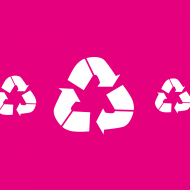GRO9 (PP) - Minimising Plymouth's waste
This policy is part of the Plymouth Plan which was approved by Plymouth City Council Full councillors on 27/02/2017.
The City will adopt an approach to waste management that strives to achieve the most sustainable solution, subject to the constraints of feasibility and financial viability. As such, the City will proactively support the development of a circular economy to gain maximum value from materials and products by keeping resources in use for as long as possible, and then recovering material value at the end of life. In order to achieve this outcome, the City will review its policies and plans which currently support the city's waste management in the following order: 1. Prevention; 2. Preparing for reuse; 3. Recycling; 4. Other recovery; 5. Disposal, and will aim to achieve a 50 per cent recycling rate. Particular measures include:
- Waste prevention. In order to sustain the delivery of high levels of waste reduction, the City will:
- Continue to actively undertake waste prevention and minimisation awareness raising campaigns and educational activities.
- Promote and support home composting for garden, vegetable and fruit wastes.
- Support those engaged in the development of a circular economy and the extension of product life.
- Waste reuse and recycling. The City will:
- Continue to proactively assist community and voluntary groups, and businesses which seek to explore, pilot and develop reuse and recycling activities and projects to generate economic and social value.
- Enhance its recycling infrastructure and continually seek opportunities to support investment in its Materials Recycling Facility, Household Waste Recycling Centres and the expansion of these and other facilities as viable options for increasing recycling.
- Waste recovery. In relation to residual waste that is still left to be managed and which is not committed as part of the waste stream to be processed through the Devonport North Yard Energy from Waste Plant, the City will strongly encourage the use of emerging green technologies for waste recovery. In this respect, the City will give proactive assistance to public sector organisations, community and voluntary groups, and businesses which seek to explore, pilot and develop the use of green technologies.
- Municipal waste management outcomes. The City will continue to minimise the amount of municipal waste that is landfilled, so that less than 2 per cent of waste arising are landfilled. Additionally, the City will identify detailed actions to achieve ambitious waste management outcomes to maximise the prevention, reuse and recycling of waste.
- Planning powers will be used to ensure that development contributes positively to the achievement of the waste management hierarchy.
- In respect of the processing of incinerator bottom ash from the Energy from Waste plant, which forms part of the waste stream generated for Torbay and south and west Devon, the City will expect a regional solution to be found given the city's urban nature.


